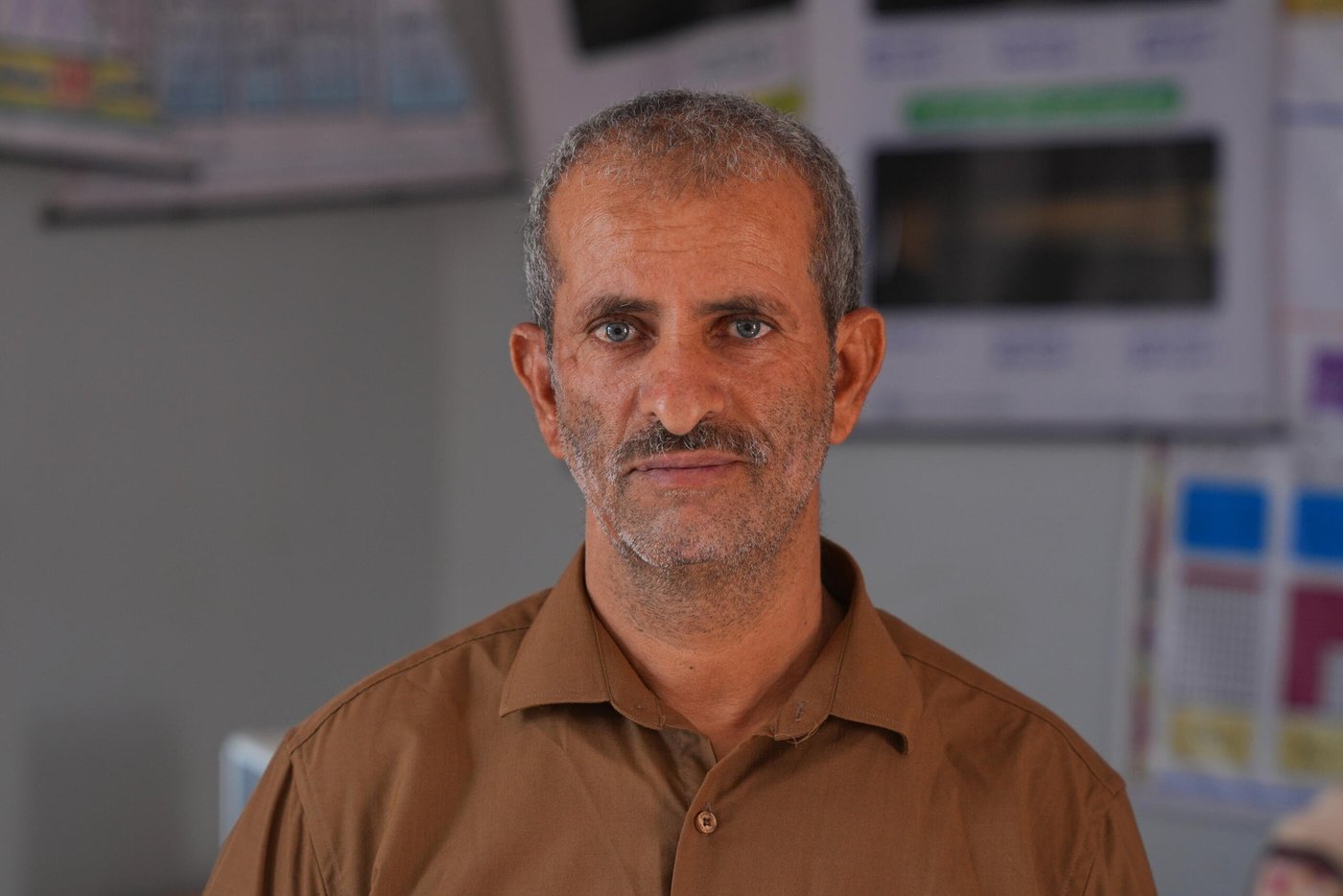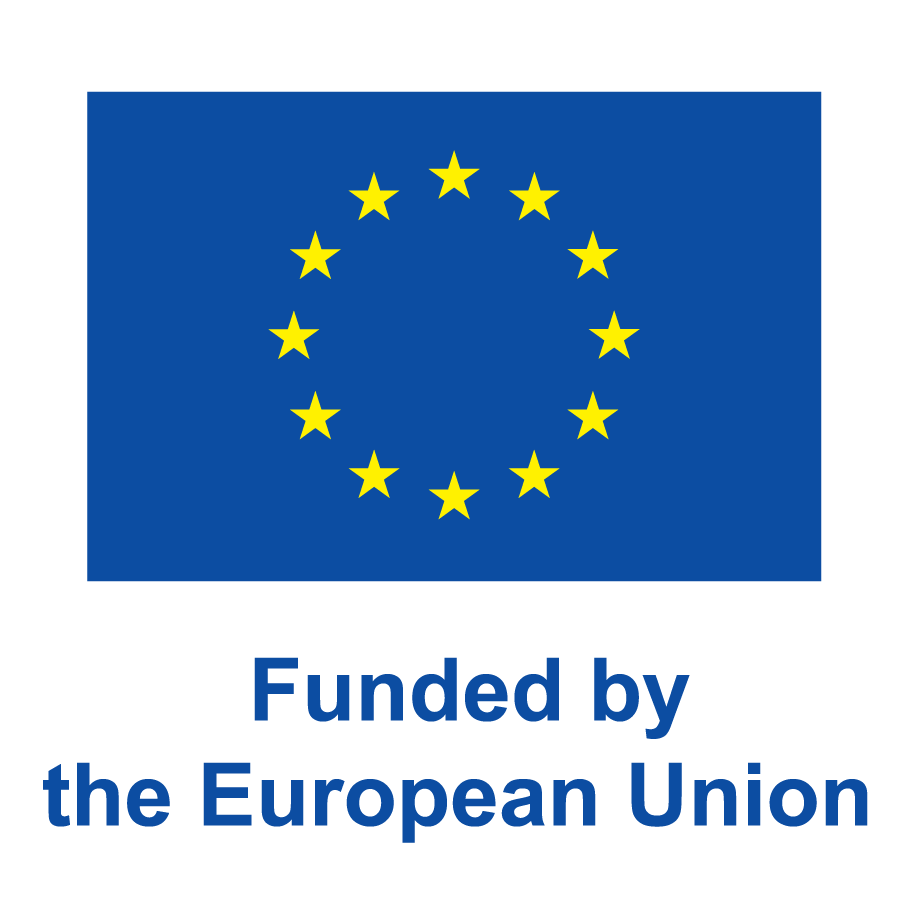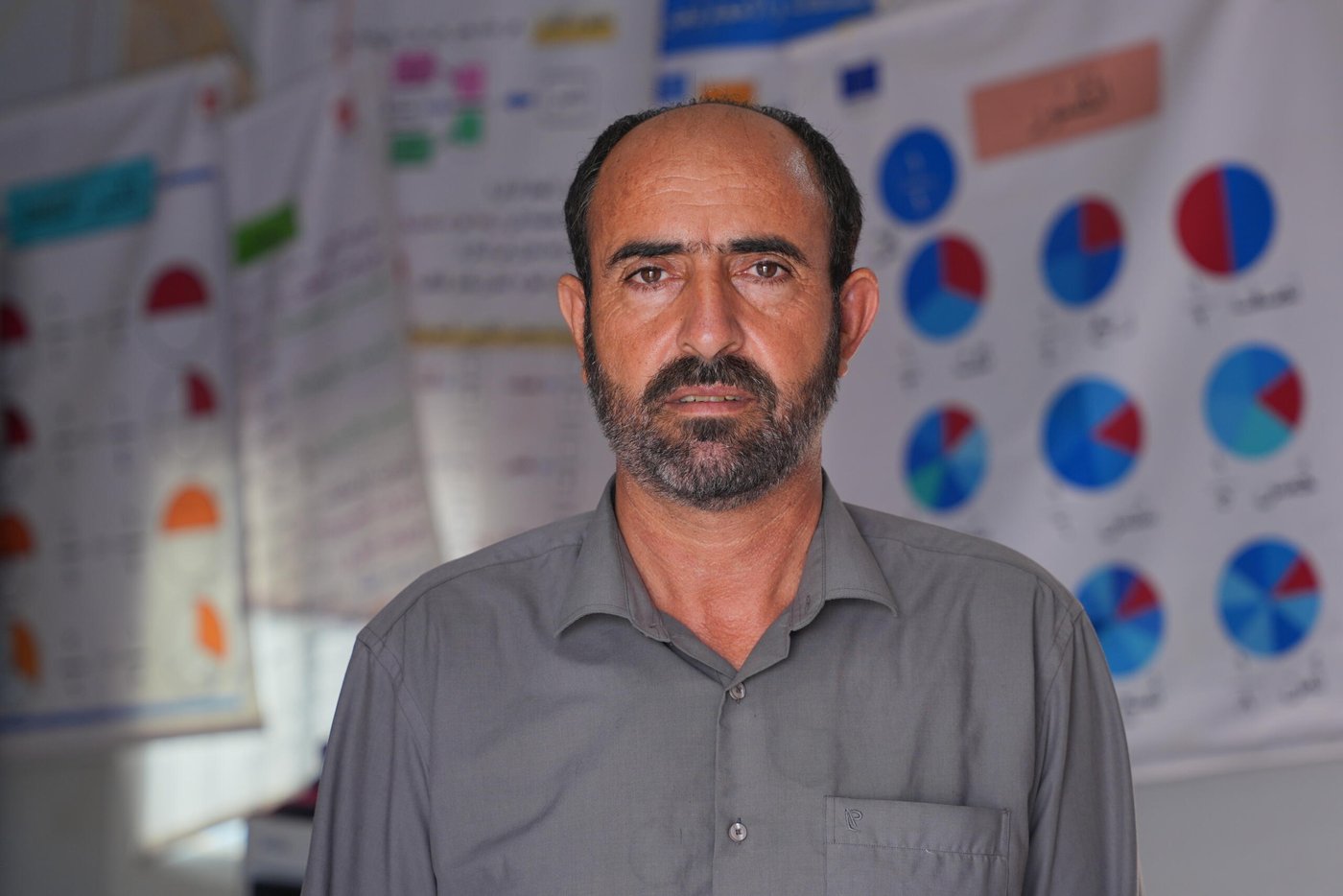With no access to education, illiteracy rates began to rise among the children. Determined to change this, parents initiated a community-led effort to establish a school. It was a major challenge, but their determination prevailed.
“The community participation began in 2020 when parents identified a plot of land for a school and reached out to humanitarian organisations to help build classrooms,” says GarAllah, 48, head of the parents' council at Abu Obaida School in Marib.
According to GarAllah, children, most of whom were displaced, began attending the school in 2020.
“Most residents here are displaced families who cannot afford to pay for education. But those who can contribute do so without hesitation, for the sake of their children’s future,” he adds.

According to Save the Children, two in five children in Yemen, around 4.5 million, are out of school, with displaced children twice as likely to drop out compared to their peers.
To support education in the area, the Norwegian Refugee Council (NRC), with funding from the European Union through its Humanitarian Aid Operations, provided students at Abu Obaida School with cash to buy school supplies, equipped classrooms for better learning, supported remedial classes, strengthened parents’ councils, and provided a school grant of EUR 345 to encourage community participation.
This grant strengthens parent councils to take a more active role in school life and foster stronger links between schools and their communities. It does so through the implementation of school improvement plans (SIPs), which invite community members to contribute by volunteering their time and skills or offering financial support to complement the grants.
“Education has improved significantly since NRC’s intervention," continues GarAllah. "We can see the difference in the quality of education our children are receiving."
The initiative has propelled students’ academic performance to more than three times its previous level, according to the competency-based assessment report.
He noted that the community also donated money, which was combined with the EUR 345 grant to purchase equipment for the school.
“With the community’s support, we were able to buy a loudspeaker, a computer and a printer for the school. We work closely with the school management to ensure our children receive high-quality education. We dream of a better future for them.”

Saleh, 53, the leader of Madinat Sheba, confirmed the quality of education at the school and expressed that he is proud to see children learning.
“If it weren’t for humanitarian organisations, our children wouldn’t have access to this kind of education,” he says. “Our participation is essential, everything we’ve done is for our children.”
Saleh emphasised that the community will continue to support the school whenever possible.
“We built a school from nothing, and our children have gone from being illiterate to being able to read and write. That alone brings us great joy.”
Last year, NRC, with support from the EU and other donors, helped 20,763 children access high-quality education. Under the current EU-funded project, NRC is now helping 40,000 children to receive the education they deserve.
NRC is committed to ensuring that all displacement-affected children (ages 6–18) and youth (ages 15–24) in targeted locations have access to quality, safe, and inclusive learning opportunities that meet their psychosocial, emotional, and cognitive needs.
In Yemen, NRC’s education and youth programmes help children and young people reconnect with their families, friends, and communities through education. The programmes create safe spaces where they can study, play, and regain a sense of normalcy. They also equip students with the knowledge and skills needed to protect themselves during crises and beyond. By offering flexible learning pathways, NRC enables children and youth to return to school and thrive in their education.

Sign up to our newsletter to read more stories from around the world.


